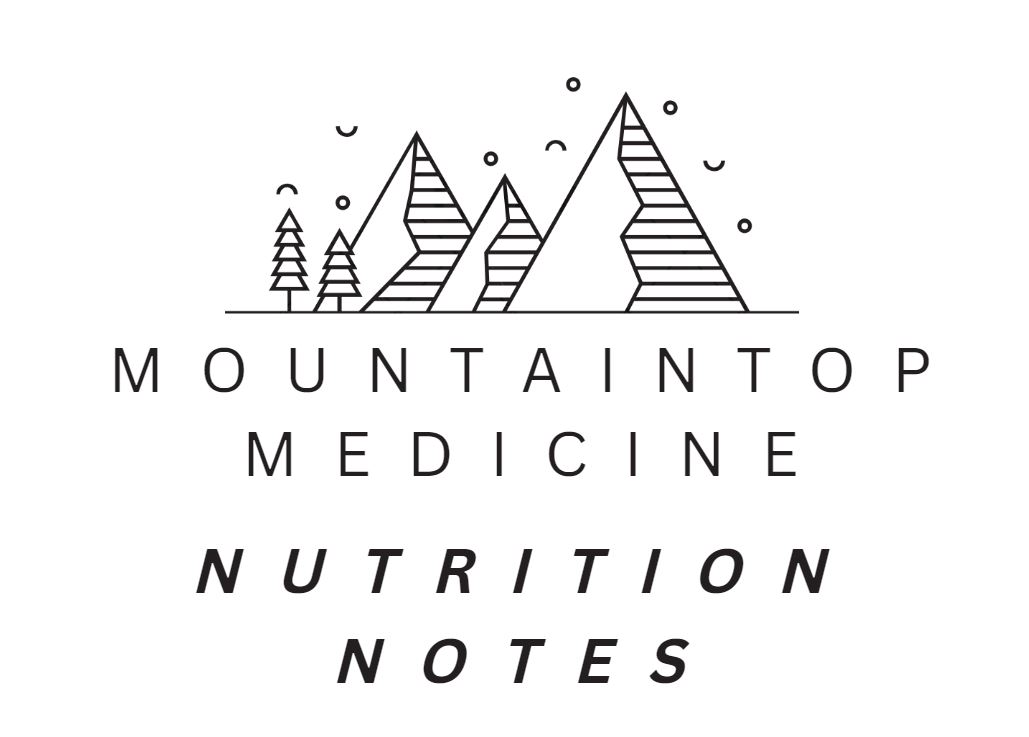Mountaintop Medicine: Nutrition Notes — The Benefits of a Protein-Forward Diet


Leah Gardner, EPH Registered Dietitian
Hello again! Welcome back to Nutrition Notes. Many health professionals have recently begun advocating for high protein diets due to their proven positive impacts on our health. Whether your goal is to lose weight, build muscle, or live an overall healthy lifestyle, consuming enough protein each day is vital to reach your goals. Now, I am not recommending you follow a Keto diet that limits carbs, but instead, to simply increase your intake of protein-rich foods.
Why is eating protein so important?
- Protein is required for the growth and maintenance of tissues. Under normal circumstances, your body breaks down the same amount of protein that it uses to build and repair tissues. Other times, it breaks down more protein than it can create, thus increasing your body’s needs. It is especially important for the growth and development of children, teens, and pregnant women. Your body’s protein needs are dependent upon your health and activity level.
- Protein helps us build and preserve our muscles. Therefore, eating an adequate amount helps you maintain muscle mass as you age and promotes muscle growth when strength training.
- Some proteins, such as keratin, collagen, and elastin, help form the connective framework of certain structures in our bodies. Keratin is found in our skin, hair, and nails. Collagen is the structural protein of our bones, tendons, ligaments, and skin. Elastin enables many of the tissues in our bodies to return to their normal shape after stretching or contacting- like our lungs, uterus, and arteries.
- Many of our hormones are made of proteins that act as chemical messengers that aid communication between our cells, tissues, and organs. These proteins are made and secreted by our endocrine glands and are transported to tissues and organs throughout the body. Some of these hormones include insulin, glucagon, hGH (human growth hormone), ADH antidiuretic hormone), and ACTH (adrenocorticotropic hormone).
- Protein strengthens our immune system by helping to form antibodies that fight off infections from bacteria and viruses.
- Our bodies rely on proteins to transport nutrients like vitamins, minerals, blood sugar, cholesterol, and even oxygen throughout our bloodstream and into and out of our cells. For example, hemoglobin is a protein that carries oxygen from our lungs to body tissues. Glucose transporters move glucose to our cells and lipoproteins transport cholesterol and other fats in our blood.
- Proteins such as albumin and globulin help maintain our body’s fluid balance by attracting and retaining water. If you do not eat enough protein, fluid could build up in the spaces between your cells, causing swelling, or edema, to occur.
- A protein-rich diet promotes weight loss because protein reduces our appetite by keeping us fuller for longer periods of time. High protein intake has also been shown to significantly boost metabolism and increase the number of calories you burn. Our bodies burn calories while digesting foods, and sources of protein are more difficult to digest and absorb, meaning that you burn more calories. Eating more protein also helps to preserve our muscles as we lose fat.
Protein-Rich Foods:
Animal proteins such as chicken, turkey, beef, pork, fish and other seafoods, eggs, and dairy products like whole milk, Greek yogurt, cheese, and cottage cheese are higher in protein and to be highly bio-available- meaning that our bodies absorb them more easily than plant sources of protein.
Plant sources of protein include whole grains like whole wheat, oats, brown rice, wild rice, amaranth, barely, farro, and buckwheat, beans and legumes, and nuts and seeds.
It is important to get in a variety of animal and plant sources of protein to ensure maximal absorption and to get in a diverse range of essential amino acids, which are the building blocks of protein that are not found in the body and must be received within our diet.
How much protein should you eat in a day?
A good rule of thumb is to eat between 0.8-1.0 grams of protein per kilogram of your current body weight if you are sedentary. To change pounds to kilograms, divide your body weight in pounds by 2.2.
Growing children and teens, those with chronic illnesses or with severe wounds, pregnant women, older adults, and individuals who are physically active should increase their protein intake to at least 1.2-2.0 grams of protein per kilogram of body weight. A registered dietitian can help you determine precise protein needs based on your age, lifestyle, and current health status.
I am now offering outpatient nutrition counseling and education services at Estes Park Health. If you are interested, please contact your health provider for a referral. If you have any questions or if there are any nutrition-related topics that you would like me to discuss here on Nutrition Notes, please reach out at LGardner@EPH.org!


